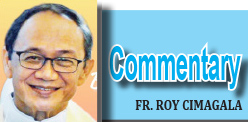The call for sobriety
Building financial security: A roadmap to peace of mind
Financial security is not about accumulating wealth; it’s about achieving a sense of peace and control over your financial future. It’s about knowing that you can weather life’s storms, pursue your dreams, and live with confidence, knowing that your financial foundation is solid. Building financial security is a journey, not a destination, and it requires a proactive approach, a commitment to planning, and a willingness to make smart choices.
Here’s a roadmap to guide you on your journey to financial security:
1. Assess Your Current Financial Situation:
The first step is to understand where you stand. Create a comprehensive financial snapshot by listing your assets, liabilities, income, and expenses. This will give you a clear picture of your current financial health and identify areas for improvement.
– Assets: What do you own? This includes your home, car, investments, savings accounts, and any other valuable possessions.
– Liabilities: What do you owe? This includes mortgages, loans, credit card debt, and any other outstanding payments.
– Income: How much money do you earn? This includes your salary, wages, investment income, and any other sources of revenue.
– Expenses: How much money do you spend? This includes your housing costs, food, transportation, utilities, entertainment, and any other recurring expenses.
2. Set Financial Goals:
Once you have a clear picture of your current situation, it’s time to set financial goals. When setting goals, remember to make them SMART: Specific, Measurable, Achievable, Relevant, and Time-bound.
– Short-Term Goals: These goals are achievable within a year or two, such as paying off credit card debt, building an emergency fund, or saving for a down payment on a house.
– Long-Term Goals: These goals are further out, such as retiring comfortably, funding your children’s education, or leaving a legacy.
3. Create a Budget:
A budget gives you control over your finances by helping you understand your income and spending patterns. It helps you track your spending, identify areas where you can save, and stay on track to achieve your financial goals.
– Track Your Spending: Use a budgeting app, spreadsheet, or notebook to monitor your spending for a month or two.
– Categorize Your Expenses: Identify your essential expenses (housing, food, transportation, utilities) and discretionary expenses (entertainment, dining out, shopping).
– Allocate Your Income: Decide how much of your income will go towards each category and stick to your plan.
4. Manage Debt Wisely:
Debt can be a major obstacle to financial security. Create a plan to manage your debt effectively.
– Get Rid of Your High-Interest Debt: Make it a priority to pay down the debt that’s costing you the most.
– Consolidate Debt: Consider consolidating your debt to lower your interest rates and simplify payments.
– Negotiate with Creditors: If you’re struggling to make payments, contact your creditors to explore options like a temporary payment reduction or a hardship program.
5. Save and Invest:
Saving and investing are essential for building wealth and achieving long-term financial security.
– Emergency Fund: Build an emergency fund that covers 3-6 months of living expenses. This will provide a safety net in case of unexpected job loss, illness, or other emergencies.
– Retirement Savings: Think long-term and start saving for retirement early.
– Investing: Invest your savings in a diversified portfolio of assets, such as stocks, bonds, real estate, and precious metals.
6. Protect Your Assets:
Take steps to protect your assets from unexpected events.
– Insurance: Obtain adequate insurance coverage for your home, car, health, and other assets.
– Estate Planning: Create an estate plan that includes a will, power of attorney, and healthcare directives. This will ensure that your assets are distributed according to your wishes and that your loved ones are taken care of.
7. Seek Professional Advice:
Consider consulting with a financial advisor to get personalized guidance and support. A financial advisor can help you develop a comprehensive financial plan, create a budget, manage debt, and invest your savings wisely.
Building financial security is a journey that requires commitment, discipline, and a proactive approach. By following these steps, you can create a solid financial foundation, achieve peace of mind, and pursue your dreams with confidence. No matter where you are in life, you can always start working towards a more secure financial future.
————–
If you have any questions or would like to share your thoughts on the column, feel free to send an email to jca.bblueprint@gmail.com. Looking forward to connecting with you!
Promise until death
People got it clear that in the election promise to eliminate drugs in the country, the former and now detained president placed his trusted tough guy who was the top implementer of the bloody war on drugs in the country. The loyal hard rock general was the top choice for the position as police general to head the national police force. Being the tough police officer and trusted law enforcer in Davao City when the former and now president in detention was city mayor. Apart of keeping the safety from criminals and lawless elements, he performed well in the fight against illegal drugs. The then city mayor proudly declared the peaceful situation in his city and vowed to replicate the program nationwide once he becomes president.
That campaign promise to end the drug menace in the country within six months from the time he commences his term as president that captivated the support of the people that had been longing to find a solution to the drug menace in the country. The enormity of the drug problem in the country was a tough challenge as it appears unsolvable within a short period of six months. But people believed in the promise due to their frustration that the drug menace had engulfed the country from all nooks and at all levels. Reports of politicians and police officers having involvement in the proliferation of the drug problem sounded real to the ordinary citizen.
That was enough reason to bring into the top police position his trusted police general in his home city. It would be easy carrying out a drug war that had been tested in the local level. The familiarity of strategies that silenced drug users, pushers and traders in his city would be a great help doing it nationwide. The tough police general quickly gained popularity as he was in the news and television shows. The drug war was the top agenda of the administration and they hit the ground running to finish the drug menace within the promised six months.
The former and now detained president declared in public that there are at least three thousands drug addicts in the country based on the number of innocent people killed by Hitler during that dark period. Such estimation method is certainly not found in statistics books. But as the bloody war on drugs continued, those killed were considered as mere cold statistics.
Immediately, police officers were ordered to coordinate with barangay officials in listing the drug users in their jurisdiction. Without delay, those listed were invited by the police through operation “tokhang”, a shorted word for the phrase “katok-hangyo” which means knock and request. It sounds subtle as those in the list were just invited to assemblies where they were oriented with the drug war program and requested to quit with drugs and reform their lives for good.
The orientation sounds good but the former and now president in detention were also lecturing police officers on the “tokhang” strategy, instructing them to kill drug suspects on the ground of self-defense, making sure that the killed suspect would be portrayed and reported as having resisted arrest, with plantd evidence of being in possession of illegal drugs and gun. Then in a blink of an eye, the persons in the list of suspected drug addicts that is well kept from the public eye.
The former and now detained president and his loyal hard but now soft rock police general had promised each other to hold each other in sickness and in health until death of the first to leave for the final journey to everlasting, as in the immortal song entitle “eternal flame”.
comments to alellema@yahoo.com
LGU-Gamay, NSSDEO inaugurates bridge rehabilitation project
NSSDEO, Brgy. Burabud, Laoang, Northern Samar – The local government unit of Gamay and the Department of Public Works and Highways – Northern Samar Second District inaugurate the rehabilitated bridge, which coincides with the commemoration of the 78th founding anniversary of the municipality of Gamay, implemented by the DPWH-NSSDEO, which now provides easy access for the residents going to and from the market and institutional centers of Barangay Central Poblacion, Gamay, Northern Samar.
It can be recalled that the wooden bridge was rehabilitated due to its deteriorated steel girder and rotten timber planks, stringers, and transoms. Before rehabilitation, the wooden bridge was too risky and dangerous to cross for the students and market-goers especially during wet season.
On February 25, 2025, the inauguration commenced with a ceremonial blessing officiated by Rev. Fr. Cleofas Añonuevo, followed by a ribbon-cutting, to signify the official opening of the project, led by the Board Members of the Second District of Northern Samar, Hon. Dexter Galit and Hon. Maritess Gillamac, DPWH-OIC Assistant District Engineer Francisco Y. Tañala and Project Engineer Bryan M. Fortes, Municipal Chief Executive of Gamay, Hon. Raquel T. Capoquian, Vice Mayor Clarita P. Gomba, Engr. Charlie Dy, School-in-Charge of Gala Vocational School, Marieta Villas, PESO Manager, Atty. Ceasar Clacito, 2nd LT. Raelan Alch Tenorio, PA, and other esteemed members of the Sangguniang Bayan.
In an interview, Hon. Capoquian said, “Dako sine a bulig para saam mga estudyante sa Gala Vocational School ngan para saam nga mga Gamaynon, dara kay una ada amon eskwelahan, terminal, ngan Gamay Public Market. Ine nga steel bridge dako nga bulig kay sadto sa panahon nga wara pa sine, naagi sira ngadto sa hirayo, ngadto sa concrete bridge kun dien delikado para sa ira kay iton national road. Ako pa ginlalauman nga magkamay-ada pa sin mga proyekto an Gamay nga magtitikang sa DPWH. Salamat.”
Mayor Capoquian commended the implementing agency and underscored the importance of continued investment in infrastructure, asking for the installation of Solar LED lights on the said bridge, to enhance nighttime visibility, for the safety of the commuters.
The undertaking is a testament of the collective vision and unwavering commitment to easily access the other part of the central población where the institutional centers are located, such as the Gala Vocational School, Gamay Public Market, Gamay Doctor’s Hospital, and Gamay Integrated Land Terminal.
The 100% accomplishment of the Rehabilitation of the Bridge, opens its door to the public signifying continuous progress of the Municipality of Gamay.
(dpwh8/nssdeo/rnl/jmp)
DPWH commences construction of new flood control structure along Camansihay River
TACLOBAN CITY – The Department of Public Works and Highways (DPWH) – Tacloban City District Engineering Office (TCDEO) is constructing a 144.7-million flood control structure along the Camansihay River, Tacloban City, which will soon safeguard the nearby community from potential flooding.
The construction of this project, now in its early stages, aims to prevent water accumulation that could affect nearby residential areas, a local school, and a commercial establishment.
With heavy rainfall contributing to water build-up, the structure is expected to play a critical role in protecting the community.
The 730-lineal-meter stone masonry flood control structure will help manage water flow and prevent the dangerous build-up that leads to flooding.
“This project is crucial in protecting the community. Upon completion, this flood control structure will greatly lower the risk of flooding from heavy rains and water accumulation, providing a safer place for them,” said District Engineer Rebecca G. Yuse.
(PUBLIC INFORMATION UNIT)







Weaving through the fabric
Politics, often perceived as the realm of government and elections, extends far beyond the confines of official institutions. Its tendrils reach into nearly every aspect of our lives, shaping our experiences, influencing our choices, and defining the very fabric of our society. This pervasive influence, while sometimes subtle, is undeniable and warrants careful examination.
One of the most visible manifestations of this pervasiveness is in the economic sphere. Government regulations, tax policies, and trade agreements directly impact businesses, industries, and individual financial well-being. From the price of goods to the availability of jobs, political decisions have a profound and often immediate effect on economic realities. This influence extends beyond macroeconomics, impacting even seemingly mundane aspects like the cost of healthcare or the availability of affordable housing. Political ideologies often underpin economic philosophies, leading to significant differences in policy approaches and their subsequent societal consequences.
The cultural landscape is also shaped by political forces. Debates surrounding issues like freedom of speech, religious expression, and artistic censorship are fundamentally political in nature. Government funding for the arts, media regulations, and even the promotion of certain cultural narratives all reflect underlying political priorities and values. This influence can be seen in the types of stories told, the perspectives presented, and the overall cultural climate fostered by a society’s political system.
Education, a cornerstone of any developed society, is not immune to the reach of politics. Curriculum development, funding allocations, and educational policies are all subject to political influence and debate. The emphasis on specific subjects, the teaching methodologies employed, and even the very structure of the educational system are often shaped by prevailing political ideologies and priorities. This can lead to significant disparities in educational opportunities and outcomes, depending on the political climate and the policies enacted.
Healthcare, a fundamental human right, is another area deeply intertwined with politics. Access to healthcare, the quality of care, and the cost of medical services are all significantly influenced by political decisions. Government regulations, insurance policies, and funding models all play a crucial role in shaping the healthcare landscape. Political ideologies often clash over issues like universal healthcare, the role of private insurance, and the regulation of pharmaceutical companies.
The legal system, while ostensibly designed to be impartial, is inevitably influenced by political considerations. The laws enacted, the interpretation of those laws, and the enforcement of those laws are all subject to political pressures and influences. Judicial appointments, legislative processes, and even the public perception of justice are all shaped by political forces. This influence can lead to significant disparities in the application of justice and the protection of individual rights.
Even seemingly apolitical aspects of life, such as personal relationships and family dynamics, are impacted by the broader political context. Social norms, cultural values, and societal expectations are all shaped by political discourse and policy. Issues like marriage equality, parental rights, and gender roles are all subject to intense political debate and legal challenges, reflecting the pervasive influence of politics on personal lives.
The pervasiveness of politics in modern society is undeniable. From the economy and culture to education, healthcare, and the legal system, political forces shape nearly every aspect of our lives. Understanding this pervasive influence is crucial for informed citizenship, critical thinking, and meaningful engagement in the democratic process.
Ignoring this reality leaves us vulnerable to manipulation and unable to fully comprehend the complexities of the world around us.